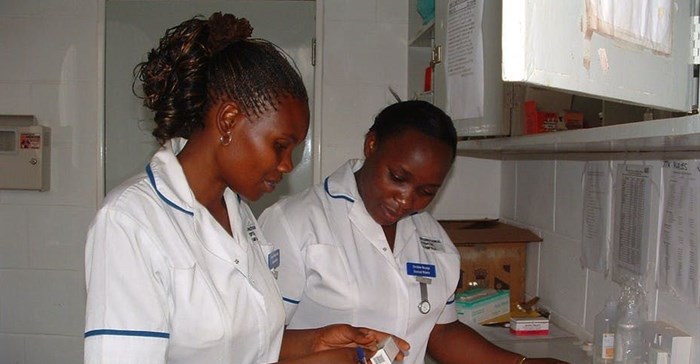What we found out about bribery patterns in Uganda's healthcare system

A camera crew was on hand to film the confrontation that followed. The police were close behind to arrest the two health workers. The drama captured national and international headlines.
Our fieldwork, which looked for surprising “success stories” in bribery reduction efforts in Kampala, began a day before this “investigation” took place. The minister’s involvement in the plot was exceptional but we learned that publicised anti-corruption raids in Uganda’s health sector are not unusual. Rather, they are emblematic of a high-profile strategy devised by the government to crack down on bribery and other sources of corruption in the sector.
Our research was done under the umbrella of the “Islands of Integrity” project which uses global data to identify sectors within a country that have experienced a significant – if surprising – reduction in bribery relative to other sectors.
We found that in Uganda, contrary to expectations given the sector’s history of corruption, bribery for health services reduced dramatically between 2011 and 2015.
This achievement has been widely applauded. But our research also showed that were serious downsides to the “naming and shaming” approach taken by the administration. This includes a disgruntled workforce and question marks over the long-term sustainability of the approach.
Corruption in Uganda
Almost half of all people who made contact with the health sector in Uganda in 2010 paid a bribe. But by 2015 this rate was just 25% . This is an almost unprecedented reduction, especially in such a short time frame. And runs counter to the trend in other sectors where bribery remained at high levels.
Our research shows that the main factor was the introduction of the Health Monitoring Unit which was launched in 2009.
The unit is a highly visible institution with wide ranging powers to monitor and evaluate the performance of health facilities, investigate and arrest corrupt health workers and audit Uganda’s health procurement and supply system. It also works with the courts to prosecute healthcare-related crimes.
Its most high-profile work involves carrying out unannounced investigations in health facilities, which are either randomly selected or in response to specific complaints. These complaints often include bribery claims.
While the unit prides itself on getting the job done observers have criticised its investigations for being “militaristic”, based on a strategy of catching health workers “red handed” and then “naming and shaming” them in public.
It is true that unit arrests are often covered by the media. Its exploits usually receive front page coverage. Nevertheless, the fear of exposure has been a useful deterrent for potential bribe seekers.
Sustainability questions
We found that bribery patterns were indeed disrupted because health workers were afraid of being monitored, arrested and punished. All the healthcare workers we interviewed in Uganda’s Central, Eastern and Western provinces knew about the unit and its raids. All of them were of the opinion that the raids were the reason bribery in the health sector had decreased.
However, the case isn’t an uncomplicated success story.
The first big question is over sustainability. A disruptive strategy like this is expensive, time consuming, resource intensive and requires constant rebooting to keep people on their toes. As far as we can tell, there are no real plans for ongoing disruption or next steps.
The approach also doesn’t take into account the real-life “benefits” of bribery such as supplementing the meagre wages in the health sector. Because of this, we found some evidence in our interviews with front line health staff that bribery patterns are reemerging, a trend observed in research done by others looking at the role of social norms and “camouflaging” behaviour in bribery.
Rather than halting completely, it looks like the patterns may be changing. Bribery strategies are changing and could return in full force when the pressure comes off.
Ultimately, and of the utmost importance, is the fact that the approach doesn’t tackle corruption higher up the chain, which is where the problem begins.
Unintended consequences
Our research also uncovered evidence of some unintended consequences of the unit’s name and shame approach. As early as 2010, the unit’s work was said to be “humiliating” health workers and negatively affecting staff morale.
In December 2017, members of the Uganda Medical Association went on an unprecedented nationwide strike which lasted over a month and brought the already weak health system to its knees. The health workers cited the unit as one of the key causes of the strike.
In keeping with the sentiments of the strikers – and research done by others – our findings suggest that the unit’s ultimate impact on service delivery could be negative, with staff morale falling to an all-time low. Fearful, demoralised staff are not likely to provide the best care possible in the circumstances.
While Uganda’s health sector is a positive outlier on bribery, the evidence suggests the cost of controlling the vice might be too high. And the consequences of the present approach is likely to be become apparent in years to come.
Additional research was carried out by Pius Gumisiriza. Pius is a lecturer at the Uganda Management Institute.
This article is republished from The Conversation under a Creative Commons license. Read the original article.![]()
Source: The Conversation Africa

The Conversation Africa is an independent source of news and views from the academic and research community. Its aim is to promote better understanding of current affairs and complex issues, and allow for a better quality of public discourse and conversation.
Go to: https://theconversation.com/africa





